 Responding to the sexual desires of older adults in residential environments is widely recognized as a challenge by care staff, administrators, and family members. The first book to take a person-centered approach to resident sexuality in long-term care, this ground-breaking resource addresses the question of how long-term care facilities can respond to these sexual desires while balancing individual resident rights against the needs and concerns of the community as a whole.
Responding to the sexual desires of older adults in residential environments is widely recognized as a challenge by care staff, administrators, and family members. The first book to take a person-centered approach to resident sexuality in long-term care, this ground-breaking resource addresses the question of how long-term care facilities can respond to these sexual desires while balancing individual resident rights against the needs and concerns of the community as a whole.
Informative, engaging, and instructive, Sexuality and Long-Term Care recognizes sexual expression as a significant part of personality, explains why it is important to honor longings for intimacy, and provides strategies for teaching staff how to effectively, respectfully, and compassionately acknowledge those needs. Case studies illustrate potential issues surrounding resident sexuality and provide ample opportunities for healthy discussion about how the staff handled the situation, what was done well and what was not, and how to improve the outcomes.
Long-term care administrators, nurses, social workers, counselors, direct care staff, ombudsmen, and others devoted to enhancing the quality of life in nursing homes will learn how to address and prevent inappropriate behaviors, what normal sexual expression is in old age and how dementia affects it, how to accommodate the needs of LGBT residents, ways to protect residents from sexually transmitted diseases, and more.
Valuable tools for staff training are included that encourage staff and managers to explore attitudes and biases about the sexuality of older adults and help organizations develop policies related to this fundamental need.
Fully grounded in research, Sexuality and Long-Term Care will enlighten anyone who believes sexuality vanishes with age and offers many useful solutions for navigating this controversial issue.

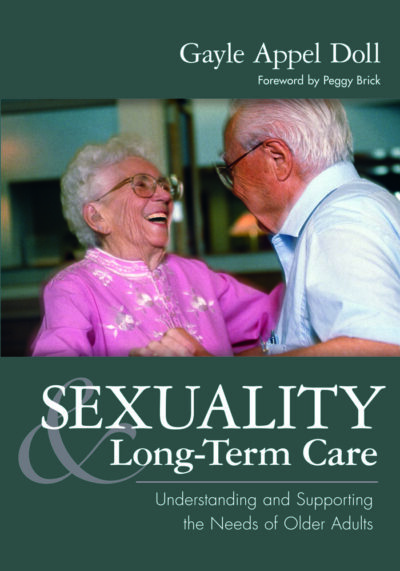
 Gayle Appel Doll, M.S., Ph.D., is Assistant Professor and Director of the Center on Aging in Kansas State University’s College of Human Ecology, where she coordinates and develops research, educational and training programs, and outreach activities on aging. She received her Master’s in Kinesiology and her Doctorate in Life Span Human Development, both from Kansas State University. Dr. Doll teaches gerontology courses at Kansas State University, earning the Commerce Bank award for Outstanding Undergraduate Teaching in 2005. Some of her courses are a part of the Great Plains IDEA distance Master’s program in gerontology, and innovative online degree program managed through Kansas State University that incorporates professors of gerontology from six Midwest universities. Dr. Doll has also headed the PEAK-education team in developing educational materials to advance culture change in long-term care. Supported through the Kansas Department on Aging, the PEAK training modules were created to help long-term care staff to improve the quality of life for frail elders. One of these modules addresses sexuality and older adults. The background research for this work led to this book.
Dr. Doll’s research has been published in The Journal of Intergenerational Relationships and Activities, Adaptations and Aging. In addition to her published research she is active in community and state programs that promote successful aging and speaks extensively in state and national forums.
Gayle Appel Doll, M.S., Ph.D., is Assistant Professor and Director of the Center on Aging in Kansas State University’s College of Human Ecology, where she coordinates and develops research, educational and training programs, and outreach activities on aging. She received her Master’s in Kinesiology and her Doctorate in Life Span Human Development, both from Kansas State University. Dr. Doll teaches gerontology courses at Kansas State University, earning the Commerce Bank award for Outstanding Undergraduate Teaching in 2005. Some of her courses are a part of the Great Plains IDEA distance Master’s program in gerontology, and innovative online degree program managed through Kansas State University that incorporates professors of gerontology from six Midwest universities. Dr. Doll has also headed the PEAK-education team in developing educational materials to advance culture change in long-term care. Supported through the Kansas Department on Aging, the PEAK training modules were created to help long-term care staff to improve the quality of life for frail elders. One of these modules addresses sexuality and older adults. The background research for this work led to this book.
Dr. Doll’s research has been published in The Journal of Intergenerational Relationships and Activities, Adaptations and Aging. In addition to her published research she is active in community and state programs that promote successful aging and speaks extensively in state and national forums.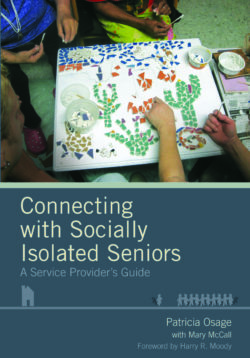
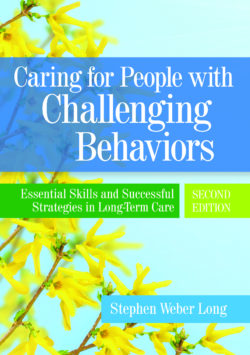
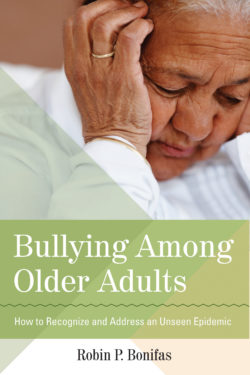
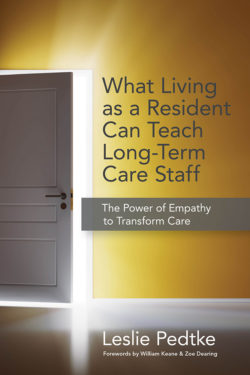
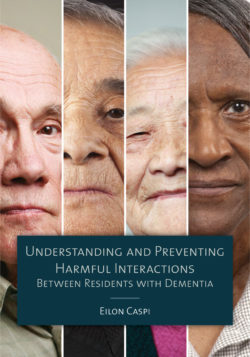
admin –
Four-star rating!
“This is an excellent resource to help nursing home staff gain an understanding of sexuality in long-term care. It tackles this difficult and, for some, uncomfortable subject in such a simple way with chapters, sidebars, and activities that can be done with the nursing home staff or even students … It is directed at long-term care staff at all levels … [and] can be used as a tool to tailor discussions at any level from residents and their families to staff and physicians … [to] promote group discussion and inner reflections for readers on their beliefs and opinions. The sidebars and activities greatly enhance the learning experience …. Grounded in research, but with very helpful practical applications, it covers the topic thoroughly, including providing sample facility policies that can be adapted to the individual facility.”
—Doody’s MedInfo Review Service
admin –
“This book is long overdue. The sexuality of older adults living in long-term care facilities has been derided at worst and ignored at best. Gayle Appel Doll has finally brought this taboo topic out of the shadows and into the daylight where it belongs for a healthy discussion by all concerned.”
—Daniel Kuhn, M.S.W., author of The Art of Dementia Care
admin –
“Gayle Doll bravely addresses the many barriers that currently deny the sexual needs and rights of many residents. [Her] pioneering book provides step-by-step guidelines for agencies ready to adopt a truly person-centered approach to sexuality.”
—Peggy Brick, M.Ed., CSE, President, Sexuality and Aging Consortium at Widener University
Administrator –
For all the innuendos and images surrounding sex in our society, it’s a topic that many long-term caregivers are reluctant to bring up with residents and their family members. Sexuality is far more than being about sex, or as Freud might have put it, sometimes a cigar isn’t just a cigar. As Gayle Doll explains in her book, Sexuality & Long-Term Care: Understanding and Supporting the Needs of Older Adults, sexuality encompasses many aspects of a resident’s life. This includes the desire for companionship and intimacy, the need for privacy, and holding onto one’s identity. ‘Unfortunately, the only time many long-term care facilities address sexuality is when there is a problem,’ writes Peggy Brick, the president of the Sexuality and Aging Consortium at Widener University, in her introduction to Doll’s book. That can mean anything from public inappropriate behaviors to an adult child flipping out upon finding a parent has a new girlfriend or boyfriend.
So what can long-term care staff do to mitigate problems yet help residents still enjoy all parts of their lives? That’s what is great about Doll’s book: Rather than an academic treatise, Sexuality & Long-Term Care is a workbook, with activities and questions designed to help managers lead staff in creating a positive environment. Those questions can be basic, such as, Does your organization have policies, which include consequences, to deal with employee or client complaints of discrimination or harassment, and is there a follow-up process?
Other activities and self-assessments will open up sticky psychological wickets for staff based on one’s personal values and background. How does a staff member handle a resident viewing pornography, same-sex residents holding hands, or a dementia patient falling in love? Doll doesn’t provide the answers, but she does provide a framework for respecting resident’s sexual needs while protecting him or her from harm.
Elizabeth Newman, McKnight’s Senior Editor, McKnight’s Long-Term Care News & Assisted Living
Administrator –
“Administrators, staff, and family members who read this book will gain the recognition that residents in long-term care settings are clearly full human beings. If facilities embrace Doll’s book, then older adults will gain recognition as individuals who can enjoy a sexual life way past the time that society currently believes they should be doing.”
Susan Regas, PsycCritiques